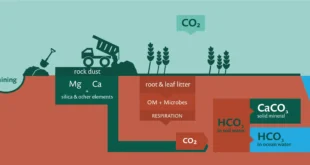- Recently, the National Green Tribunal (NGT) directed the Haryana State Pollution Control Board (HSPCB) to strengthen its capacity and the Central Pollution Control Board (CPCB) to form a uniform recruitment criteria.
- The order was to ensure better monitoring for improved compliance of environmental norms.
- Earlier in January 2021, the Supreme Court (SC) had taken suo motu cognizance of pollution of water bodies by untreated sewage in Haryana.
Important points:
- In 2018, a case was filed with NGT’s principal bench for revising existing monitoring mechanism by State Pollution Control Boards (SPCBs).
- This included an interval of mandatory inspections of highly polluting industries and policy for auto renewal of Consent to Operate (CTO) certificate under Water (Prevention and Control of Pollution) Act, 1974 as well as the Air (Prevention and Control of Pollution) Act, 1981.
- The plea pointed out that an earlier report of the Central Ground Water Board (CGWB) had established deterioration of the ground water quality in Haryana.
- The Comptroller and Auditor General (CAG) of India’s 2016 report also recorded operation of several projects without valid consent to establish or CTO certificates, showing ineffectiveness of monitoring mechanism.
- The NGT passed an order for the Haryana government to revisit its inspection policy and make it adequate to ensure effective enforcement of law.
- The Haryana government, in compliance to the NGT order, proposed a revised policy with increased frequency of inspection, installation of online monitoring devices to capture real-time data and pre-verification of documents before issuing renewal.
- Inspection at higher frequencies.
- Capacity enhancement of SPCBs/Pollution Control Committees (PCCs) with consent funds.
- Capacity enhancement of CPCB utilising environment compensation funds.
- Annual performance audit of state PCBs/PCCs.
- CPCB to prepare a format containing qualifications, minimum eligibility criteria and required experience for key positions.
Significance:
- In the name of ‘ease of doing business’, powers and authorities of SPCB have been compromised. The latest judgement of NGT is a fresh start to the long-delayed initiative of strengthening CPCB/SPCBs/PCCs.
- The judgment of NGT could be termed as landmark. The NGT has tried to erase the bottlenecks, which were being used to halt the strengthening of environmental regulation.
- The important part of the judgement is asking CPCB to come out with standard recruitment rules which can be followed by all states. The existing SPCBs recruitment rules have not been updated for decades.
CPCB:
- CPCB is a statutory organisation which was constituted in September, 1974 under the Water (Prevention and Control of Pollution) Act, 1974.
- It was entrusted with the powers and functions under the Air (Prevention and Control of Pollution) Act, 1981.
- It serves as a field formation and also provides technical services to the Ministry of Environment and Forests and Climate Change of the provisions of the Environment (Protection) Act, 1986.
- They supplement the CPCB as they are a statutory organization entrusted to implement Environmental Laws and rules within the jurisdiction of a state.
- Environmental compensation is a policy instrument for the protection of the environment which works on the ‘Polluter Pays Principle’.
- It is a specialised type of fund collected by charging the environmental violations.
- Example: Illegal discharge in water bodies.
SOURCE: THE HINDU,THE ECONOMIC TIMES,MINT
 Chinmaya IAS Academy – Current Affairs Chinmaya IAS Academy – Current Affairs
Chinmaya IAS Academy – Current Affairs Chinmaya IAS Academy – Current Affairs



